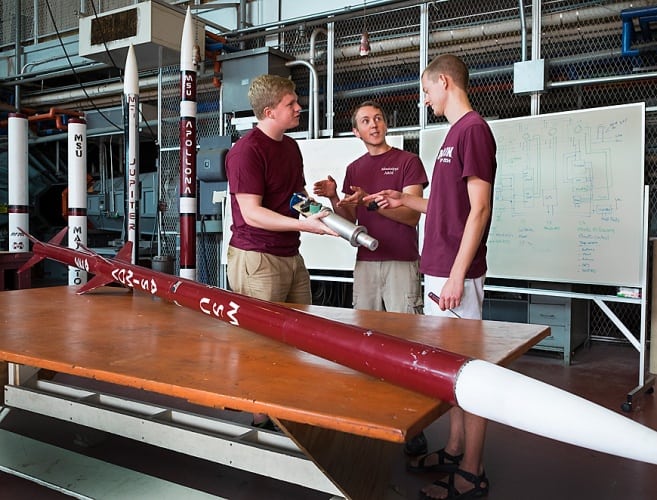
Known as the Space Cowboys, the team recently won the 2015 Intercollegiate Rocket Engineering Competition in Green River, Utah. The competition involved more than 70 universities from seven countries, including teams from US engineering strongholds such as the Massachusetts Institute of Technology and the University of Michigan.
The team of 23, most of whom were undergraduate engineering students, spent 10 months designing, building and testing their rocket Asimov, named after I Robot author Isaac Asimov. At the competition, the rocket was judged for its design, flight and the functionality of its payload.
“Going in, I did not expect us to compete for an award, but I did know we had an excellent rocket,” said the team’s chief engineer Eric Stallcup, a senior aerospace engineering major.
“After the excellent launch of the rocket, I started to think we might have a chance. The win was incredibly validating.”
Having taken top honours, the team is now turning its attention to breaking the world amateur speed record, which currently stands at around four times the speed of sound. In September, Asimov reached speeds of Mach 2.1 in testing, so the team has a long way to go before an attempt on the record can be made.
“We are thinking beyond competition to developing cutting-edge technology,” said Keith Koenig, professor of aerospace engineering and faculty adviser for the Space Cowboys. “That project may take a couple of years.”




Poll: Should the UK’s railways be renationalised?
I think that a network inclusive of the vehicles on it would make sense. However it remains to be seen if there is any plan for it to be for the...